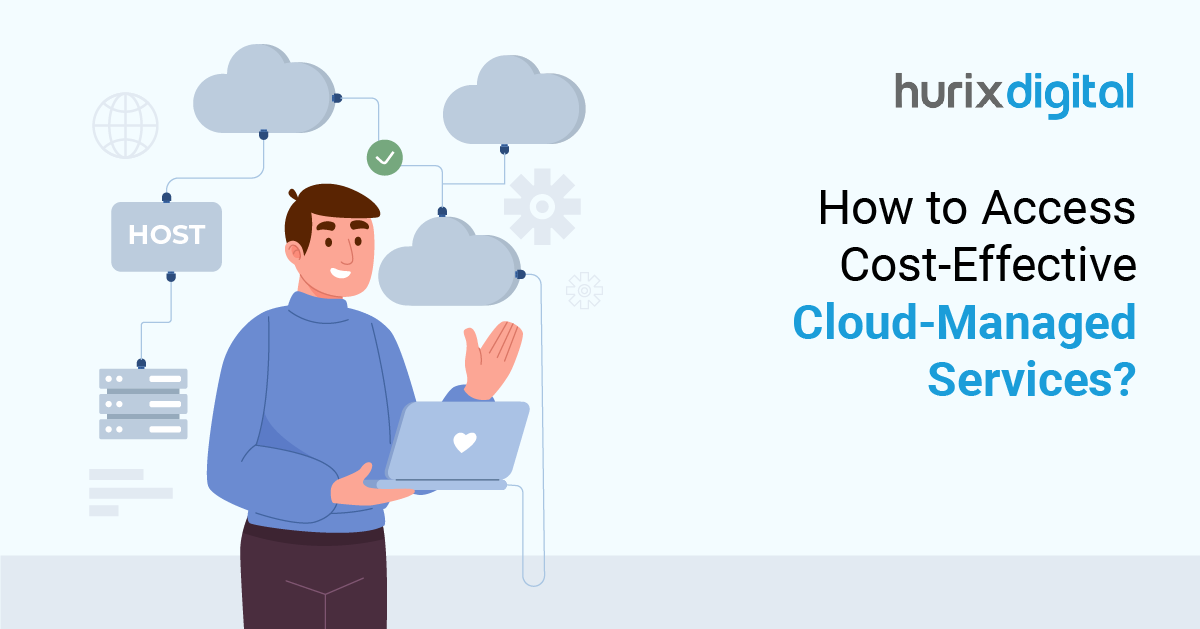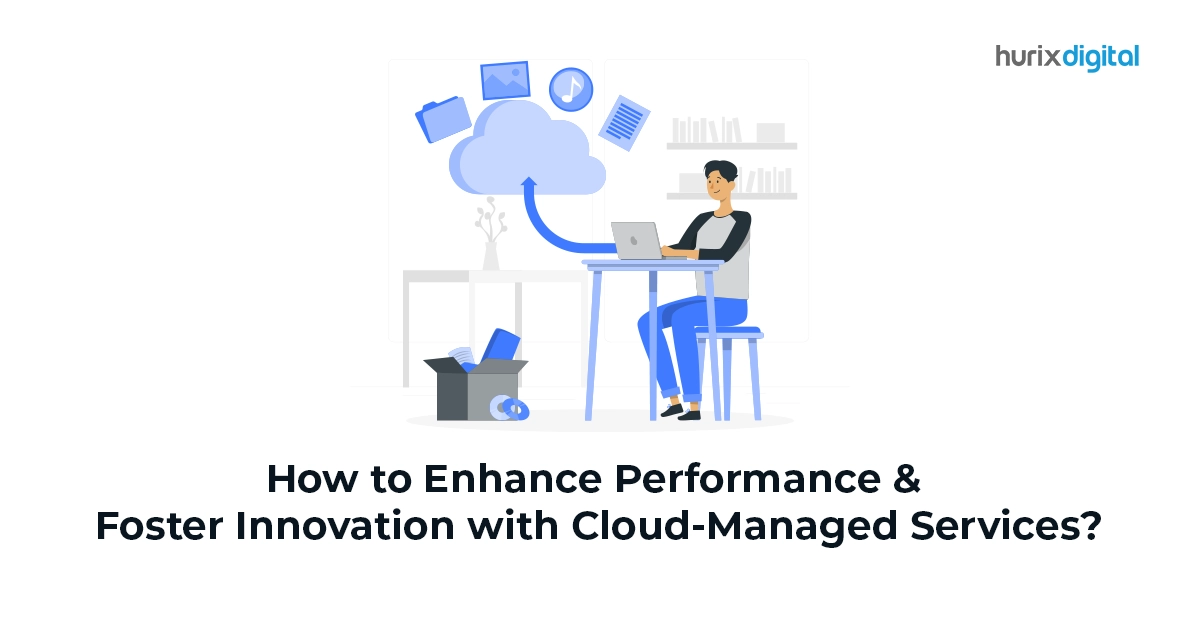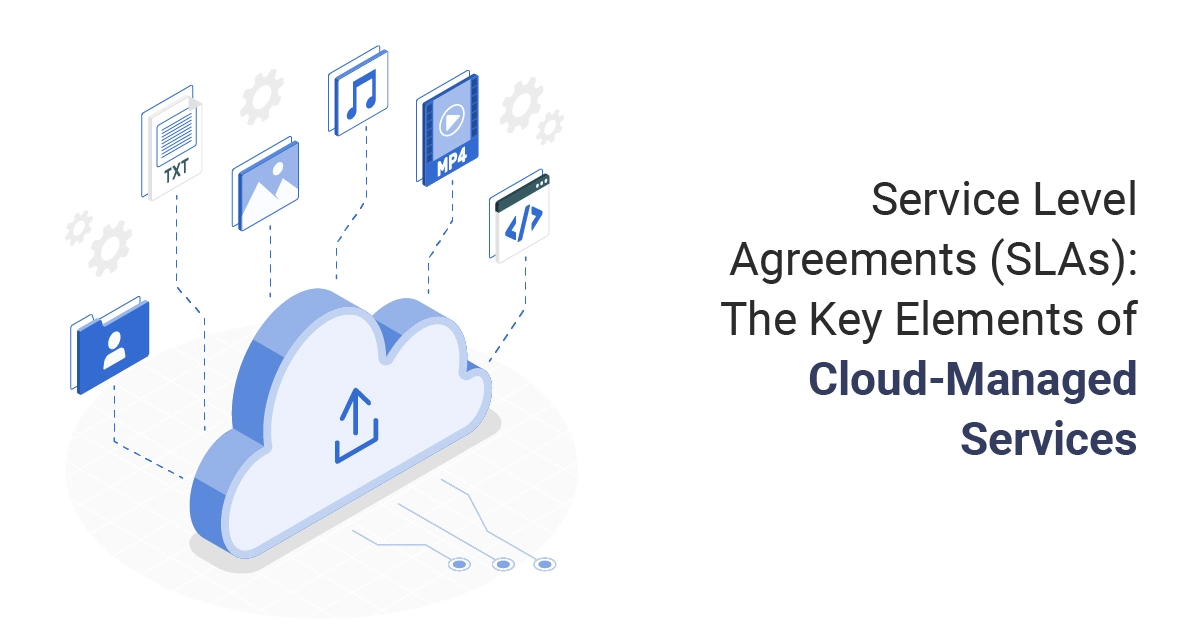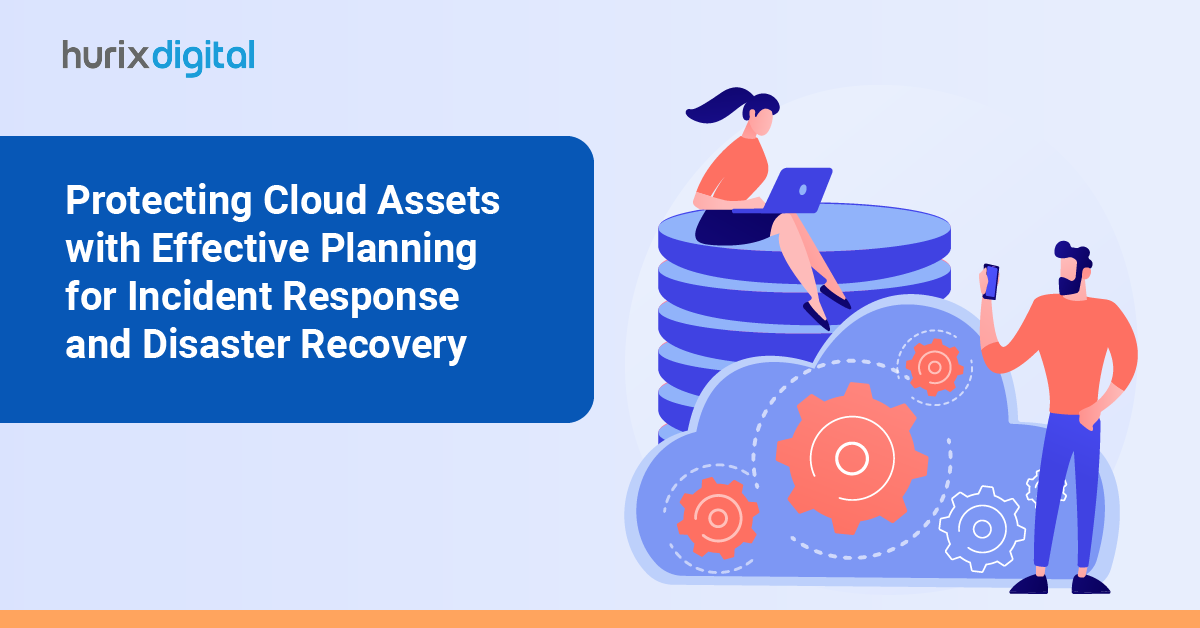
How to Access Cost-Effective Cloud-Managed Services?
Summary
This guide is all about accessing cost-effective cloud-managed services. It talks about strategies that help businesses manage their IT infrastructure efficiently while controlling costs.
Cloud computing has completely transformed the way businesses operate. This technology has brought ease of use, data-centricity and security, flexibility, centralization, and collaboration to business operations.
However, managing the cloud comes with several challenges. Lack of expertise and rising cloud-related complexity and costs are key challenges. This is where cloud-managed services are helping enterprises streamline costs and optimize operations. By 2027, the cloud-managed services market is estimated to be valued at $ 164 billion.
In this blog, we deconstruct the multiple benefits of IT-managed services, such as cloud services, and how they impact the bottom line.
Table of Contents:
- What are Cloud-Managed Services?
- How Cloud-Managed Services Lead to Cost Savings
- Impact of Cloud-Managed Services
- Wrapping Up
What are Cloud-Managed Services?
Cloud-managed services refer to the practice of outsourcing the entire cloud management function to a technology expert. This third-party service provider handles the cloud management lifecycle, from monitoring and maintenance to data security and recovery. The technology partner responds to cloud issues with urgency, helping enterprises resolve challenges quickly.
A superior cloud services partner enables businesses to cut costs significantly and optimize business operations. Today, contracting cloud-managed services is emerging as a best practice for businesses whose primary model is dependent on a fully functional cloud.
In this regard, the head of IT departments ensures that cloud-managed services align with organizational goals and operational needs. They often oversee the selection and management of the cloud services provider, ensuring that service level agreements (SLAs) meet the organization’s requirements for performance, security, and compliance.
Also Read: Cloud Cost Management – All You Need to Know About Cloud Cost Management
How Cloud-Managed Services Lead to Cost Savings
Businesses can boost their cloud management savings in multiple ways, as follows:
1. No Cloud Startup Costs
Setting up an in-house cloud management department requires investments in hardware such as servers, software, and the physical space to host the equipment and run the entire operation. Physical security to protect servers and data storage centers is also required. One of the top benefits of managed services is that it reduces IT costs.
2. Reduces Opportunity Cost
Any thriving business must ensure that the cloud is accessible and functioning 24/7. Cloud-managed services comprise a fully dedicated cloud management operation. This level of dedication ensures that the cloud never stops, ensuring business continuity. In turn, businesses can avoid opportunity costs due to interrupted, inefficient services.
3. No Need to Hire Full-Time Cloud Experts
Skilled cloud professionals today command premium compensation. By outsourcing managed IT services, businesses do not need to hire full-time professionals with cloud management experience. They can also eliminate recruitment and training expenses, bonuses, employee benefits, and other employee-related costs.
4. Access to the Latest Technological Innovations
A cloud technology specialist is constantly upgrading its in-house skill set and building innovative solutions to serve customers better.
Some key cloud computing trends include a focus on energy efficiency, serverless computing, better data storage, industry-specific cloud services, and the use of AI and the Internet of Things (IoT) in cloud computing. Businesses can enjoy the benefits when their partner adopts cutting-edge technology.
5. No Investment in Cloud Compliance and Audits
Businesses in highly regulated industries such as financial services, healthcare, and data protection need to adhere to stringent guidelines. Regular cloud compliance audits help businesses follow industry-standard best practices. Cloud-managed services ensure that their client networks stay compliant without enduring audit costs.
6. Avoid Cyber Attacks and Data Leakage
Cloud-managed services come with superior investments in data security. Businesses can avoid being prey to hackers. In case of any data breaches, cloud partners can activate their disaster recovery playbook immediately. For instance, they can immediately start isolating any compromised systems.
They can restore data through safe backups. They can proceed to implement strong security measures. On the other hand, cyberattacks and compromised data can lead to lawsuits, loss of reputation and business, and potential shutdowns, all of which come at significant financial costs.
7. Scale Operations Based on Real-time Needs
Business needs to keep changing based on new market conditions, opportunities, and challenges. Access to cloud-managed services empowers businesses to scale up or down quickly and save on costs while doing so.
Alternatively, they would need to purchase new servers, hire new staff, downsize, and execute other changes to pave the way for constantly evolving needs. With a full-time cloud management partner, they can respond to new opportunities instantly while mitigating financial losses in case of a market downturn.
8. 24/7 Monitoring of the Cloud
Uninterrupted cloud services help businesses thrive in today’s digital economy. A superior cloud-managed services partner comes with 24/7 monitoring of services to offer uninterrupted service. The cloud partner is accessible at all times and can troubleshoot in anticipation of upcoming issues.
Impact of Cloud-Managed Services
Cloud service’s ROI (Return on Investment) manifests in several ways.
Here’s a look at four key advantages for businesses:
1. Dedicated Focus on Core Functions
With a dedicated cloud-managed services partner, in-house IT professionals can focus on performing their core functions, such as building products and services, rather than managing the cloud. They can optimize the use of their time and deliver on their business goals.
2. Build Operational Efficiency
When the cloud functions smoothly and effectively, businesses can optimize operational efficiency. They can build products and services faster, access data seamlessly and securely anytime and from anywhere, and bring deeper collaboration to processes.
3. Boost Cost Savings
Outsourcing this important function to a cloud technology expert translates to efficient IT budgeting and significant cost savings. Businesses can dispense with startup, hiring, training maintenance, and technology upgrade costs. They can also reduce the potential for data-related incidents, which come at a significant financial cost.
4. Focus on Driving Revenues
Businesses can ensure operational continuity in all circumstances. They can respond to market opportunities swiftly and focus on driving revenues, which in turn boosts profitability.
Also Read: Cloud Cost Optimization: 6 Best Practices for Cloud Cost Optimization
Wrapping Up
By keeping costs low, businesses can optimize operations and become profitable. At the same time, they must ensure that they do not compromise on cloud management, which plays an important role in any successful business operation. By adopting cloud-managed services, they can optimize costs while reaping the benefits of superior services.
If your business is looking to optimize IT expenditure and balance costs with superior, seamless operations, consider partnering with Hurix Digital. Our expert team supports our cloud-managed services to ensure that you achieve both efficiency and excellence in your cloud strategy.
Get in touch with us to start a conversation today!

Vice President and Strategic Business Unit Head – Cloud Services
A top technology management voice on LinkedIn with 20 Years of experience in Information Technology, Cloud Services, Digital Transformation, Application Modernisation, Managed Services, IT Security Engineering and Operations Management. An avid technology Leader, Leadership Speaker, Author & Coach.







